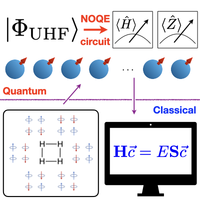Unpil Baek, Ph.D.
Improviser and Builder of Dialogue
Research Scientist (Quantum Computing & ML/AI) · Jazz Pianist & Improviser

I’m a physicist and research engineer who likes building bridges between domains—until they become something you can run. My training is in quantum algorithms for electronic structure simulation and in the numerical machinery underneath—linear algebra, variational optimization, and building software that holds up under real experiments. Lately, I’ve been extending that foundation toward modern ML/AI systems, especially agentic approaches that plan, use tools, and coordinate workflows.
In parallel, I’m a pianist and composer. My music sits at the crossroads of jazz, Brazilian, Western and Indian classical, and contemporary traditions—held together by improvisation, groove, and a love of learning new musical languages from the inside.
This site brings together my research, music, writing, and experiments across disciplines.
news
| May 03, 2026 |
|
|---|---|
| Apr 23, 2026 |
|
| Feb 11, 2026 |
|
| Feb 01, 2026 |
|
| Jan 31, 2026 |
|
latest posts
| Dec 31, 2025 | Shyam Kedar — between Remembrance and Renewal |
|---|---|
| Dec 15, 2025 | Agentic AI for Automating Scientific Discovery |
